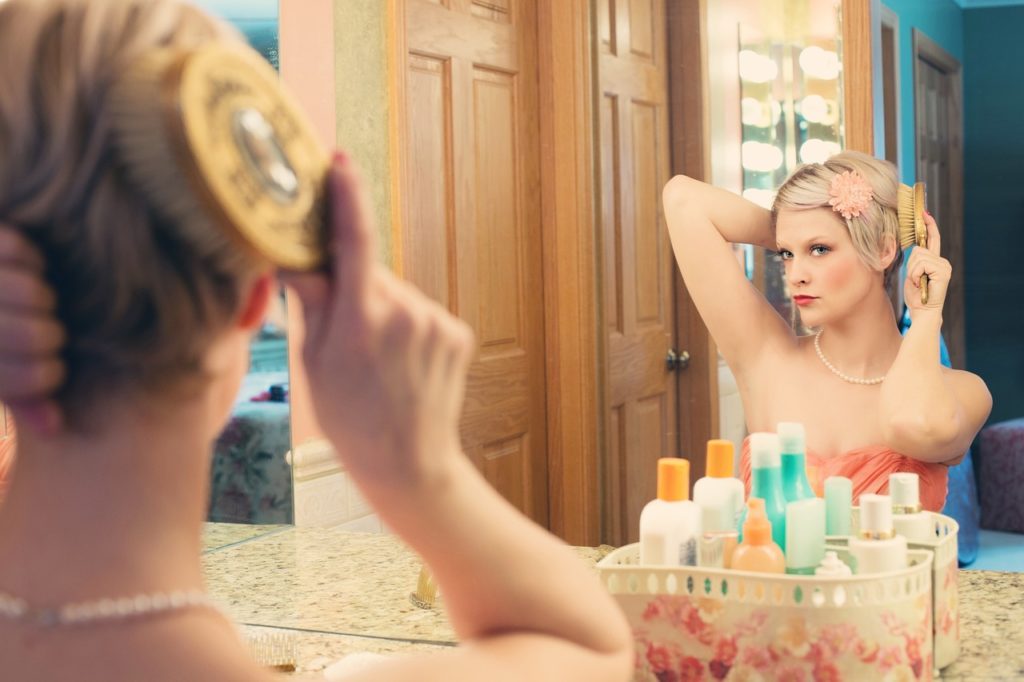- Calls to this hotline are currently being directed to Within Health, Fay or Eating Disorder Solutions
- Representatives are standing by 24/7 to help answer your questions
- All calls are confidential and HIPAA compliant
- There is no obligation or cost to call
- Eating Disorder Hope does not receive any commissions or fees dependent upon which provider you select
- Additional treatment providers are located on our directory or samhsa.gov
What Does Beauty Mean to You?

Contributor: Mikayla Kendal MS, LPC – Eating Disorder Specialist at Timberline Knolls Residential Treatment Center
Culture and society often set the standard for beauty. We see models and celebrities portraying similar physical characteristics. Viewing these “role models” of beauty can lead to associating those standards of beauty with other positive qualities in life such as love, success, happiness, and worthiness.
Even if one is aware that it is rare to meet these standards naturally, and that these beauty idols achieve this look through professional help with makeup, lighting, and digital enhancements, it is still difficult not to be drawn into the appeal of wanting to be beautiful.
Before putting all of one’s self-worth and body image into this idea of beauty, let’s take a closer look at what it means to be beautiful.
Typically, when one strives to be beautiful, they are looking to make themselves more physically attractive. To what are people actually attracted? Sure, appearance may play a role in attraction. However, there may be more to it.
Have you ever met someone who you were not initially attracted to on a physical level, and once you start talking with them you realize how funny or how generous they can be? Your attraction to them grows. They even begin to appear more physically attractive.
The same can be true when you see someone who you are instantly attracted to physically. Then, once you interact with that person, you notice that they are rude or dull. Suddenly they become much less attractive, even in appearance. Our perception of a person, once we get to know them, even a little, can drastically alter the way we view their external appearance.
So what is truly attractive or beautiful–physical appearance, or something deeper?
Have you ever noticed when someone catches your eye, even if they don’t fit the “standards of beauty,” such as a woman in a bathing suit who has a fuller body size? You could be noticing her confidence.
This attribute, or even being comfortable enough with who you are and how you look, can be a significant factor in what we find attractive. And, building up this self-acceptance is easier and has longer-lasting effects than trying to change one’s physical appearance, such as body size.
Diets and over-exercising with the intention to change one’s body requires an immense amount of effort and pushes their body to unhealthy limits. Plus, both are notorious for not producing lasting results, and the opposite effect can occur.
Another question to consider if you are equating physical appearance to love, worth, or other positive qualities is this: do you genuinely want to form a meaningful relationship with someone in which the most important reason you are together is because of external appearance?
Looks change. Think of someone you love; would you end that relationship if that person’s looks changed?
What would it be like to stop fighting your body and work toward just accepting it? Letting the appreciation of the functions of your body and all it does to help you experience life can outweigh all the ways in which your body doesn’t measure up. Focus on what matters more in life. Seeking out love, success, happiness, and worthiness are wonderful pursuits in life.
It is unrealistic to expect to receive these without working toward them in a meaningful way. These are qualities that you can strive for and are gained through developing your internal aspects, or self-image. Find beauty within and then watch as it shines through the outside. Redefine beauty on your own terms.
About Our Sponsor:
Timberline Knolls Residential Treatment Center provides quality, holistic care to women and adolescent girls ages 12 and older. We treat individuals struggling to overcome eating disorders.
About the Author:
 Mikayla Kendal MS, LPC – Eating Disorder Specialist
Mikayla Kendal MS, LPC – Eating Disorder Specialist
Mikayla is an eating disorder specialist at Timberline Knolls Residential Treatment Center. Mikayla facilitates psycho-educational groups and process groups covering many topics.
Mikayla has also taught psychology courses at Benedictine University where she received her Master’s degree in clinical psychology.
The opinions and views of our guest contributors are shared to provide a broad perspective of eating disorders. These are not necessarily the views of Eating Disorder Hope, but an effort to offer a discussion of various issues by different concerned individuals.
We at Eating Disorder Hope understand that eating disorders result from a combination of environmental and genetic factors. If you or a loved one are suffering from an eating disorder, please know that there is hope for you, and seek immediate professional help.
Published on April 1, 2019.
Reviewed & Approved on April 12, 2024, by Baxter Ekern, MBA
Published on EatingDisorderHope.com

The EatingDisorderHope.com editorial team comprises experienced writers, editors, and medical reviewers specializing in eating disorders, treatment, and mental and behavioral health.

